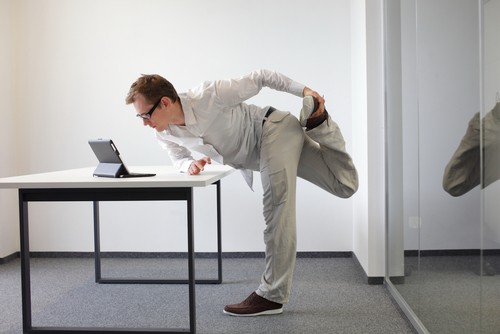
The researchers surveyed 7,000 adult patients who attended the Cooper Clinic in Dallas for preventative medicine visits from 2010 to 2015. The patients provided self-reports about how frequently they stood or exercised during the day. The researchers compared these reports to objectively measured data about their obesity and metabolic risk, using factors including body mass index (BMI), body fat percentage, and waist circumference.
Standing was linked to lower odds of obesity for male and female patients.
- Standing one-quarter of the time reduced the likelihood of obesity by 35 percent for women and 32 percent for men.
- Standing one-half of the time reduced the likelihood of obesity by 47 percent for women and 59 percent for men.
- Standing for three-quarters of the time reduced the likelihood of obesity by 57 percent for women, but did not provide additional benefits for men.
The researchers found no connection between standing and metabolic syndrome in men or women.
Standing and also meeting the recommended daily amount of exercise (150 minutes of moderate activity or 75 minutes of strenuous activity) was associated with an incremental drop in the likelihood of obesity in all measures.
The researchers note that this study does have limitations. The study shows only a cross-sectional perspective, rather than how standing can affect health overtime. However, the findings offer preliminary evidence for the benefits of standing throughout the day.
This research is published in the Mayo Clinic Proceedings.
Previous news in health:



 © 2025 Unyte Health US Inc.
© 2025 Unyte Health US Inc.